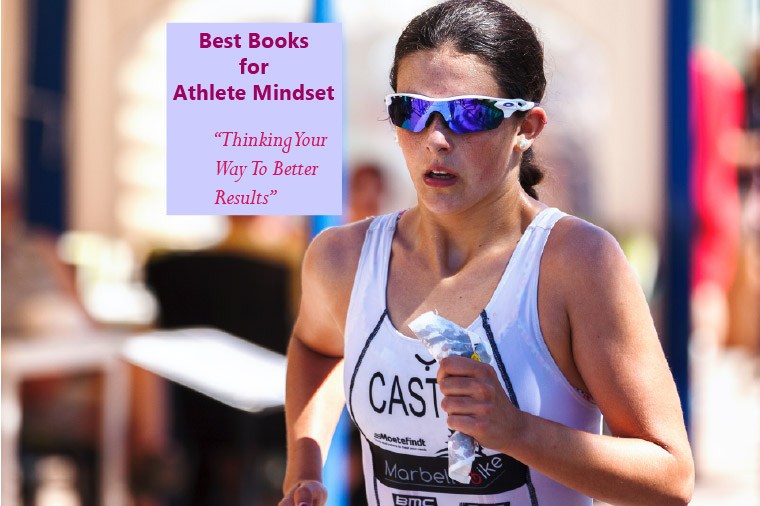You are here to get the best books for the athlete mindset. Am I right? Then that’s great. This is Raju Akon, a psychologist, and expert in sports psychology. I also have experience providing counseling to Olympic athletes. So, I am well-known for my athletic mindset. I will introduce you to the two best books for athlete mindset.
Two Best Books for Athlete Mindset
These two books will help and motivate you to reach your goal.
1. The Champion Mindset: A practical guide for Athlete’s Mental Toughness
This is a fantastic inspirational book by Dr. Joanna Zeiger. According to her account of the career-ending crash, she wrote the book professional athlete knowledge and coaching career experience. You can read this book if you feel pessimistic about your confidence or need inspiration to get motivated.

Every chapter will give you a clear goal and an excellent summary of elements. After that, you should practice when finishing the chapter. After reading this book, you will get a turning back in your life. If you read this book, you will get high effectiveness for your endurance sports training. Overall, this book will help you get a high level of discipline. That’s why this is one of the best books for athlete mindset.
2. The Champion’s Mind: Think, Train, and Thrive For Great Athletes
If you are looking for a book that helps the mindset or mental set by continuing your improvement, I suggest this book. You can feel the importance of the title says how great athletes think, train, and thrive. The book is essential for Athletes and sports psychologists to get or provide mental health training. James A. Afremow writes the book with his practical, real-life experience. Two essential things you can get from this book.

- Another central part is this book contains experience sharing from top-level athletes. They explained their mindset for winning and the way to reach the goal.
You will get inspiration, motivation, realistic exceptions, and an effective way of setting the goal for finding the way. If you read this book, it will be your athletic inspiration and guidance library. This is another best book for an athlete mindset.
You may like Best books on sports psychology.
What do Olympic athletes know or do that average athletes don’t?
They know as much as (perhaps a bit more) most athletes regarding training regimen, nutrition, and mechanics; however, they behave much differently. They do what they know and master each aspect of training. One factor that Olympic athletes master is what I call the athlete mindset. What follows are three components of that mindset.
Flexible dedication
What is flexible dedication? Flexible dedication first utilizes a long-term perspective about goal-setting while simultaneously planning for obstacles.
In short, it means that Olympic athletes can set their target goals even though they know problems (injuries, etc.) will arise.
Most athletes have a difficult time taking such a perspective. Goals four-plus years out on the horizon seem too distant to be relevant in their lives.
However, Olympic athletes can do this, partly out of necessity and partly out of their nature. They understand the process involved in long-term planning, particularly about the sport. They keep their eye on their athletic and competition goals (long-term goals) and adjust their yearly, monthly, and weekly goals (mid and short-term goals) as the situation dictates.
The ability to bounce back-quicker, harder, and better
Nobody deals with losses and setbacks better than Olympic athletes. Examples? Think Dan Jansen. Think about how often you’ve read or heard about athletes attempting to win gold for the third time (which means twelve years of training!).
Resilience- the ability to bounce back from setbacks- is a vital characteristic of the mental program of Olympic athletes. Strength is increased through proper anticipation of obstacles. Olympic athletes understand that life isn’t fair, and neither is a sport, but they forge ahead despite this knowledge.
Why are these athletes better equipped to deal with setbacks and adversity? Because they plan for it and use failure and obstacles as part of their training.
For example, some Olympic athletes, unable to participate due to injury, spend that portion of their training time doing visualization or biofeedback training instead.
Therefore, time allotted for physical training is now used for mental activity, and they continue to progress towards their goals despite their injury.
Love of competition
Olympic athletes are the perfect example of doing something for the pure joy of it. Unfortunately, the life of an Olympian, which may seem glamorous, is anything but.
Long hours in the gym, recuperating, strict nutritional programs, and hours spent reviewing tapes are commonplace in these athletes’ lives.
The ability to balance family obligations, relationships, academics, and work, in addition to their training needs, sets Olympic athletes apart. The only way they can do this is through the love of competition. And this competition is more with themselves than with others. They do it because they love competing with others and because they are obsessed with bettering themselves.
There is no better example of pure love for a sport than those evidenced in the Olympic games. Unfortunately, this love of competition and self-improvement fuels and motivates when obstacles appear, and failure occurs.
These three aspects of the Olympic Mindset provide a simple template from which you can design your self-improvement program. You don’t have to be an Olympic athlete, and you don’t even have to be an athlete to apply these principles. However, you will learn many athletic career techniques if you read the two best books for athlete mindset.

